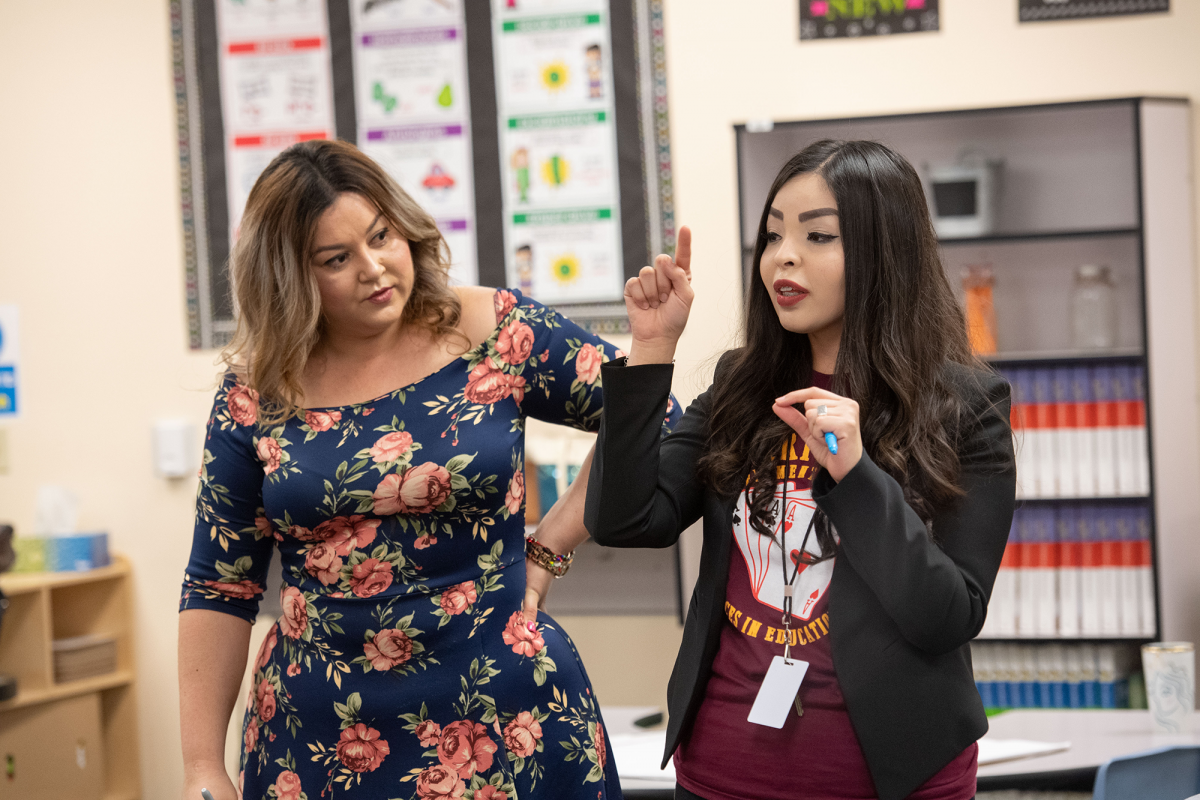Putting Instructional Improvement at the Heart of New Teacher Mentoring
September 17, 2021

By: Mari Hinojosa-Barrera, Teacher and Mentor, Alice ISD, Texas
I am privileged to work in a school that is home to many low-income and minority students. Schools like mine often have a larger number of new teachers than more affluent schools typically have. New teachers' lack of experience and effectiveness in their first couple of years can lead to frustration and turnover. All of our new teachers want to be great instructors, but they need help to get there and they need it early.
Over the last couple of years, my district has invested in mentoring as a core improvement strategy, and it's making a big difference in the quality of my mentoring and support for new teachers. The basic needs of a new teacher, including questions about classroom procedures or the school culture, still need to be met by mentors. But now our support is focused on helping new teachers to improve their instructional practice in ways that accelerate student learning. This is especially urgent this year.
My district, Alice ISD in South Texas, has made this shift in part through new funds from the state Mentor Program Allotment (MPA) to transform mentoring into a core strategy for improving teaching and learning. Because MPA funds are structured to increase investments for economically disadvantaged and/or rural areas, my district is receiving more support now. MPA funds help us to offer training, tools, and resources to strengthen our work as mentors along with providing increased stipends, release time, and opportunities for collaboration.
My work as a mentor is now focused on helping new teachers become reflective learners who will continue to improve over the course of their careers. For example, I work with my mentee on understanding the complexity and purpose of the curriculum and how to sequence and support student learning based on Texas' grade-level learning standards. One key support I provide is helping new teachers learn to anticipate the needs of individual students or groups of students based on their prior work, and then help them intentionally plan for differentiating learning to meet students' needs. Differentiating instruction to meet individual student needs is such an important skill, but one that is often a challenge for new teachers.
The basic needs of a new teacher, including questions about classroom procedures or the school culture, still need to be met by mentors. But now our support is focused on helping new teachers to improve their instructional practice in ways that accelerate student learning. This is especially urgent this year.Mari Hinojosa-Barrera, Teacher and Mentor, Alice ISD, Texas
I also support my mentee to identify whether students are learning at the depth of knowledge required by the learning standard, and how to adjust and reteach if necessary. Many new teachers just keep moving forward without really understanding whether all of their students are learning. They need to develop the skills to identify and help those who need extra support, or an extra challenge. My training as a mentor has helped build my capacity to coach them in this process.
When new teachers see the impact with their students, it changes them as a teacher, and they understand how their decisions and actions directly contribute to student learning. I help them to understand that the best teachers are learners themselves.
I have always loved being a mentor for new teachers. But I can see how much more effective I am as a result of mentor training. It's still early in the year, but I can already see new teachers learning to analyze and reflect on their practice in ways that many don't learn to do until later. That's a big win for our students.
Read more about ways to maximize mentoring for new teachers in NIET's report: Why New Teacher Mentoring Falls Short, and How to Fix It.